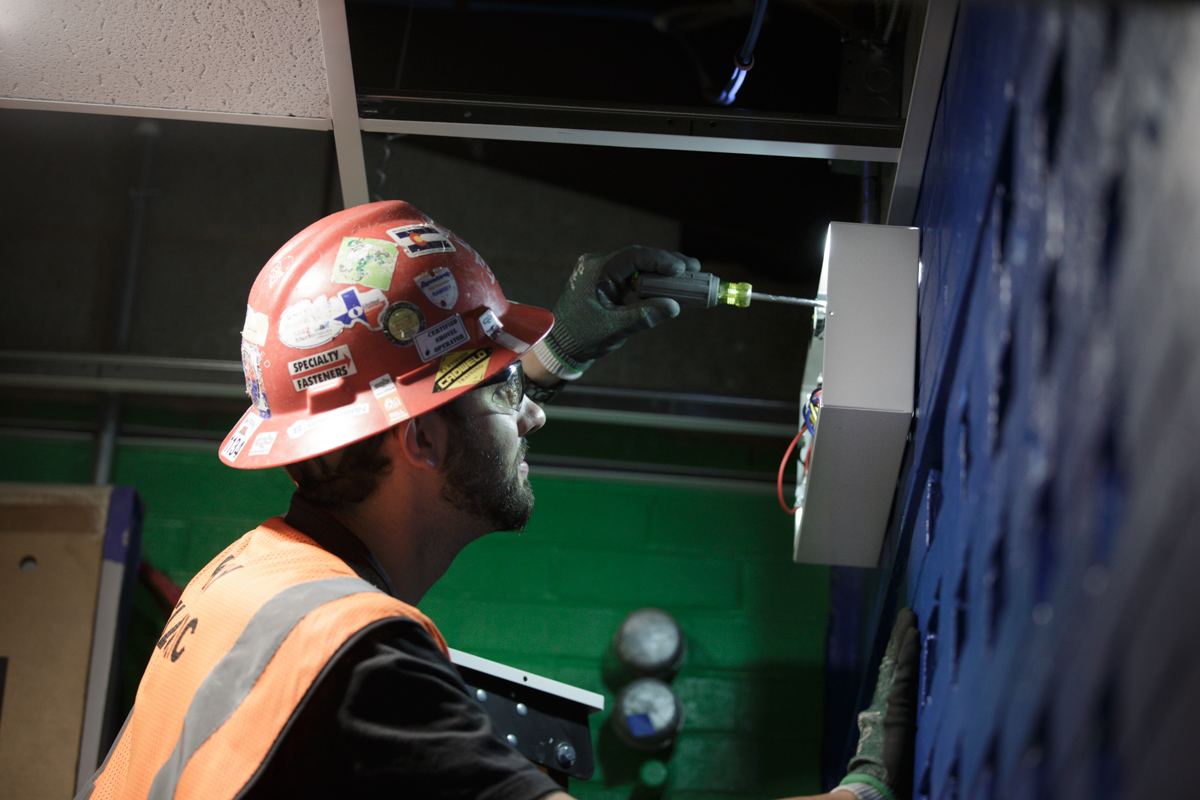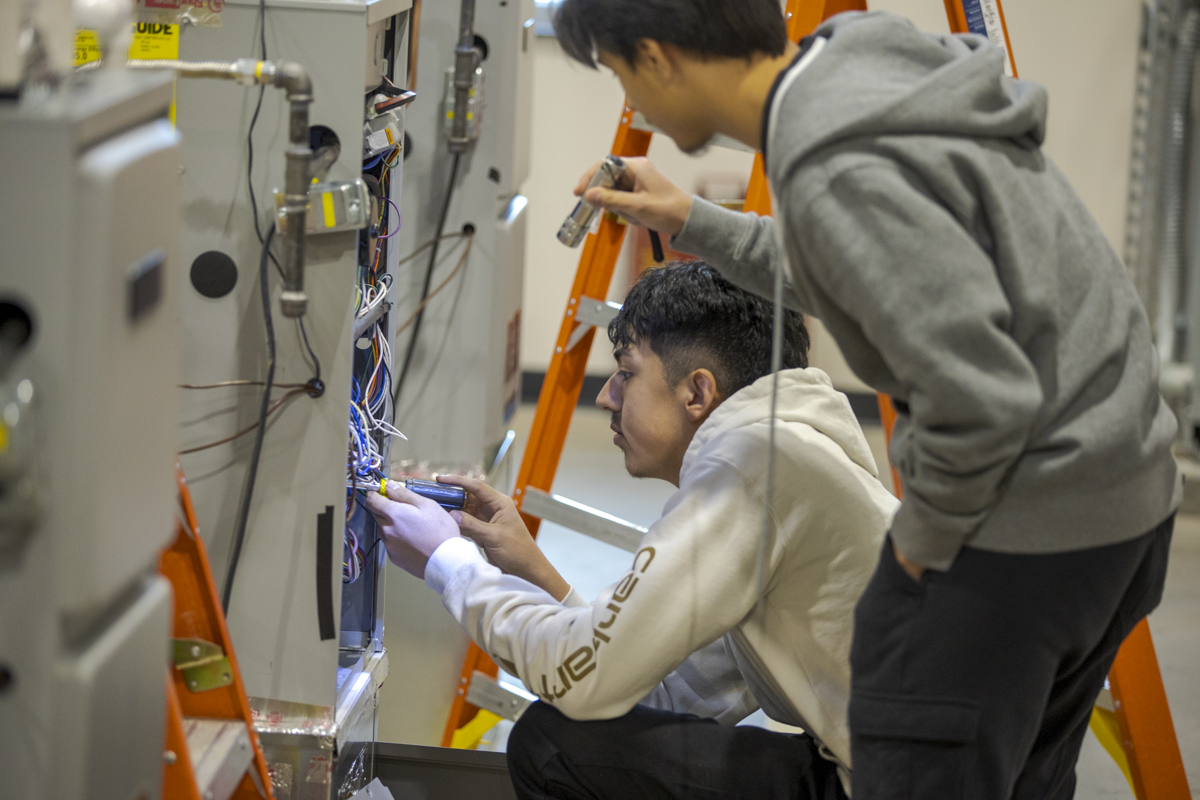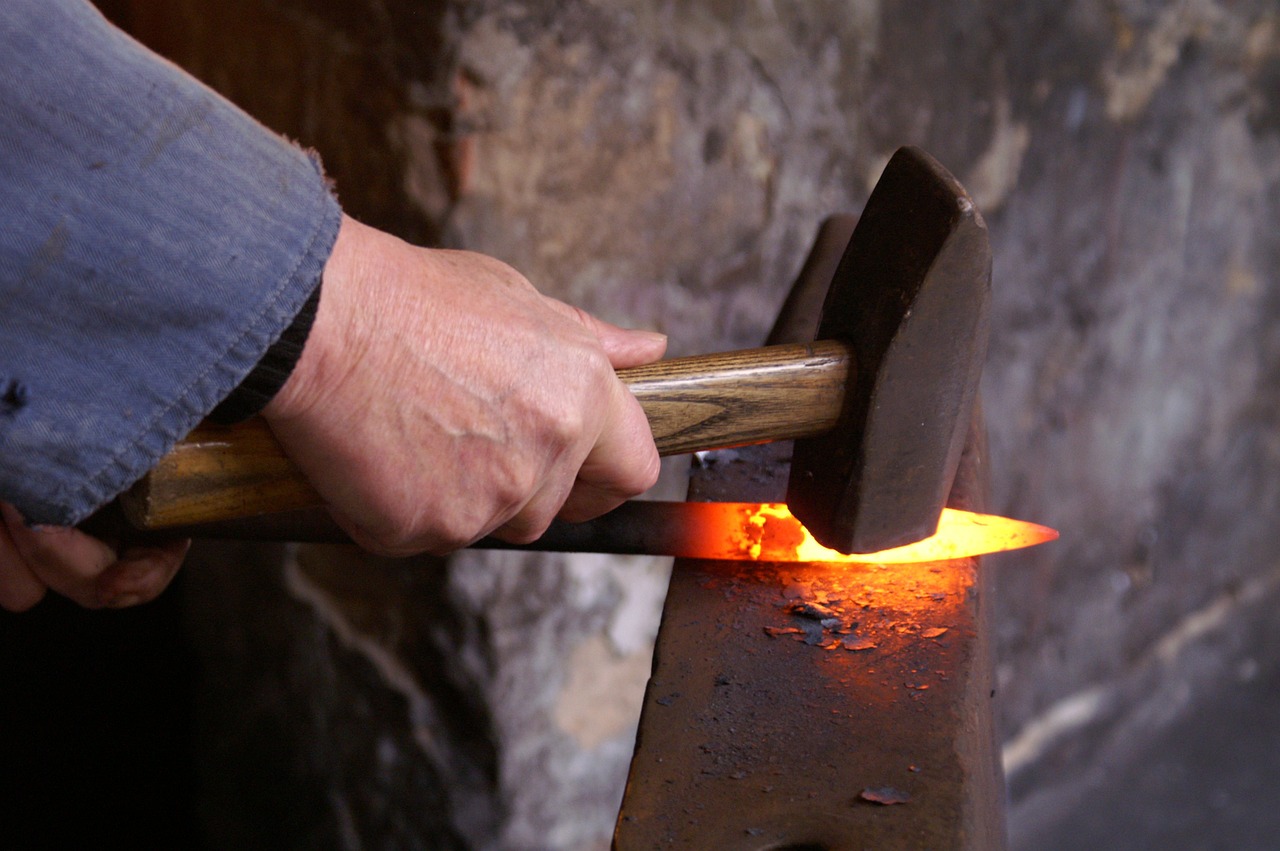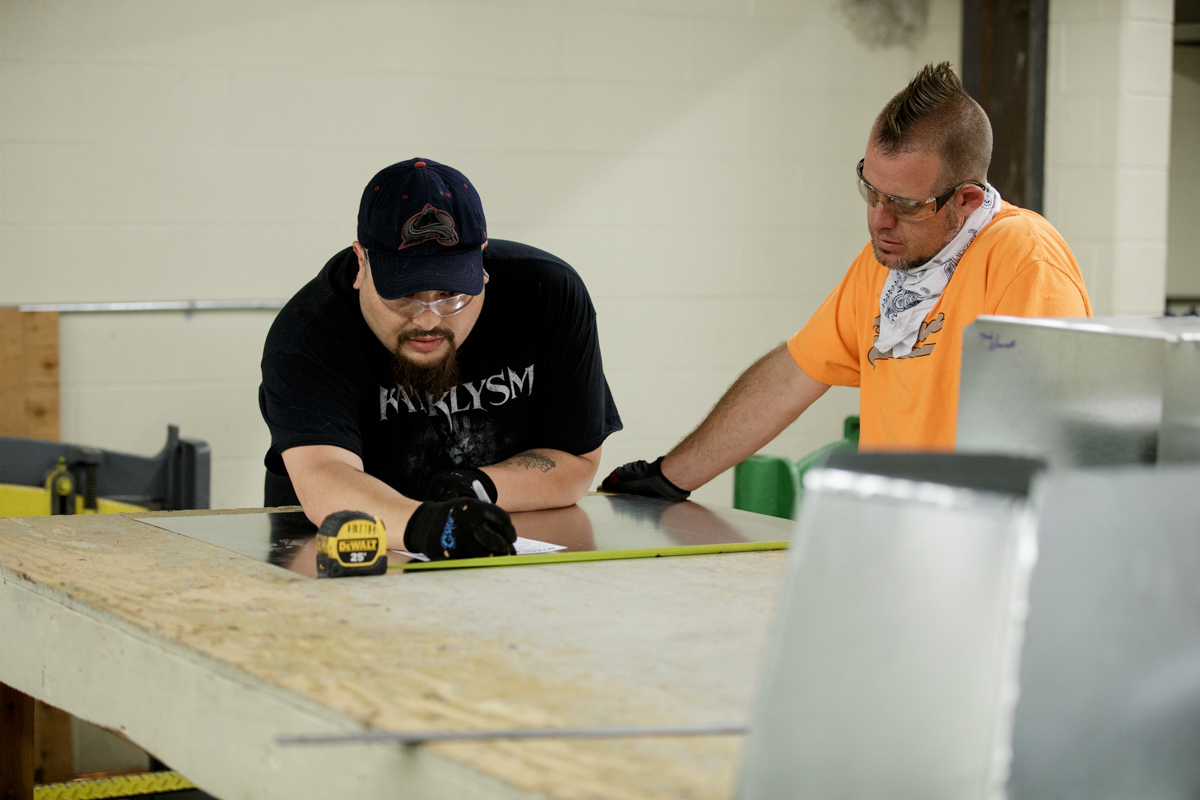APPRENTICESHIP
EARN WHILE YOU LEARN.
What if you could earn a living while training for a new career? And what if you could get started working in a fast-growing and essential industry at the same time?
With an apprenticeship, you can start working and earning wages in a field while you train for your career. You’ll gain on-the-job training supervised by a skilled craftsperson during the day and focus on classroom instruction in the evenings. Most apprenticeship programs take between 2-5 years to complete.
- Earn a wage while learning versatile industry skills
- Learn on-the-job from industry professionals
- Support for gaining industry credentials such as a Journeyman’s License
- Earn college credits that can be applied to an associate’s degree or even a bachelor’s degree through CSU Global
- Enter into high-wage career pathways
- Upon completion, receive a portable, nationally recognized credential from the US Department of Labor!
- Most require a High School Diploma or GED
- You must be at least 18 years of age
- Most require a valid driver’s license
- Students are required to arrive at the job site on time and are responsible for their own transportation
In addition to entry requirements, apprenticeship training programs want applicants who demonstrate a variety of skills and attributes, including:
- Reliable work ethic
- Strong math skills
- Ability to follow directions and pay attention to detail
Apprentices attend a minimum of 144 hours of classroom instruction and 2,000 hours of on-the-job training per year. Most apprenticeship programs take between 2-5 years to complete.
Typically apprentices are responsible to pay for application fees, union/association dues, books or tools. Often, the employer pays for the majority of your tuition and fees. For specific questions regarding program costs, please contact the individual program apprenticeship contacts.
Our Apprenticeship programs are managed by partners across the state. Our partners include the Construction Industry Training Council of Colorado, RK Mechanical, Independent Electrical Contractors, and more.
If you are interested in getting started on an apprenticeship program, reach out directly to our partners for the apprenticeship of your choice.

Emily Griffith Technical College and Metropolitan State University of Denver (MSU Denver) have partnered to provide a seamless transition for apprentices from Emily Griffith’s Registered Apprenticeship programs into MSU Denver.
Upon completion of an apprenticeship, Registered Apprentices will be able to transfer into a four-year degree program at MSU Denver.
Emily Griffith college credits can be applied to an associate’s or bachelor’s degree through CSU Global.
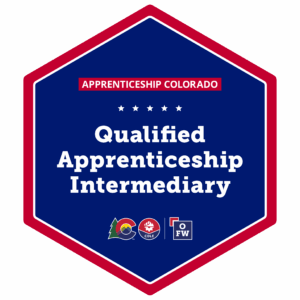

Emily Griffith Technical College is an official U.S. Department of Labor’s Office of Apprenticeship (OA) Apprenticeship Ambassador and State of Colorado Department of Labor recognized Qualified Apprenticeship Intermediary.
Contact Apprenticeship
EXPLORE REGISTERED APPRENTICESHIPS
FAQs
Highly motivated, accountable individuals with the desire to learn and work. People who are serious about making a successful living, and enjoy challenges with substantial rewards.
Starting wages for apprentices in Colorado range from minimum wage to $16+ per hour with the opportunity for pay increases as you progress through the program. Generally, apprentices initially earn approximately 50% of what a journeyperson or licensed tradesperson earns.
There are many opportunities to earn an excellent salary in the construction industry. Your earning power depends on several factors such as previous experience, the trade and the economy. You could be a journeyperson or work up to owning your own business!
To apply to an apprenticeship program, you need a high school diploma or GED in most cases. For the Electrical trade, you will need to have demonstrated math proficiency with one year of high school Algebra or one semester of college Algebra.
Apprentices who complete their program are certified journey-level craft professionals. There are many professional opportunities in the construction industry. With experience and on-going training, many craft professionals pursue diverse career pathways such as management, safety supervision, business development, estimating, and self-employment or contracting.
During the application process we encourage you to talk to multiple trades to find the one that is right for you. Once you are accepted into an Apprenticeship program, you may not change crafts without canceling your agreement.
Yes, all gender identities are welcome and encouraged to consider an apprenticeship. Many apprenticeship programs have female journey workers and instructors that interact with and support all apprentices. Professional organizations such as the National Association of Women in Construction (NAWIC) provide additional mentoring and networking activities.
Criminal records are generally not a barrier to a successful career in the construction industry. Apprenticeship programs usually don’t perform background checks or disqualify because of convictions. Some contractors may require a background check for a particular job site.






